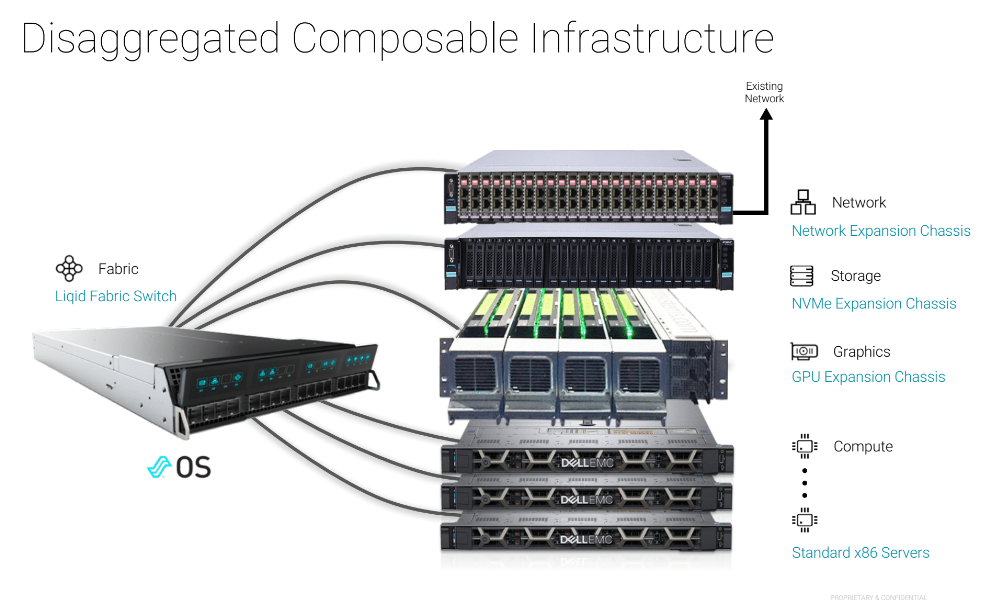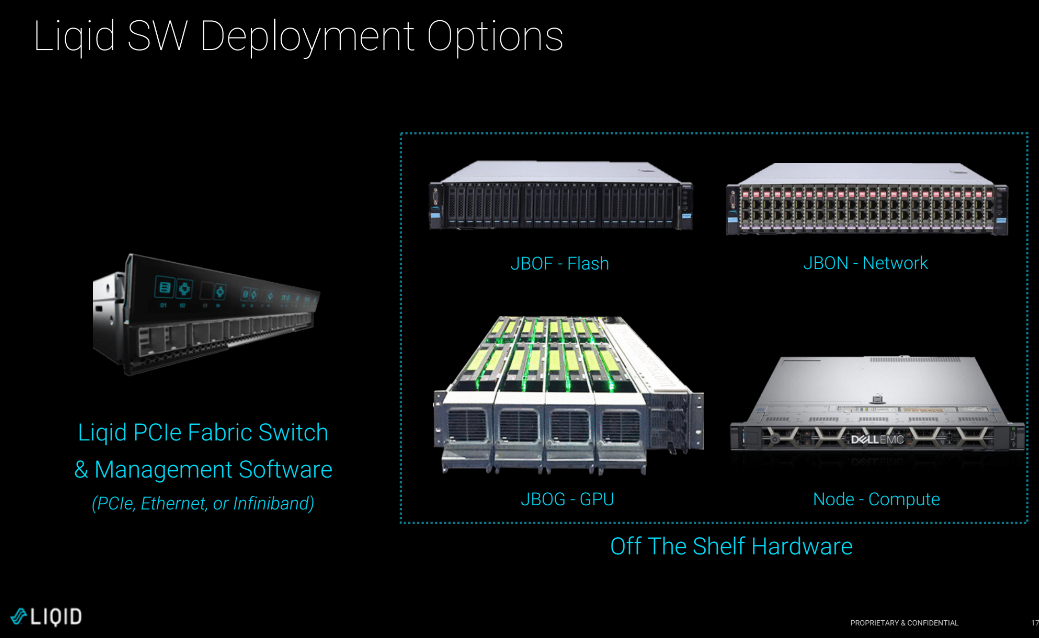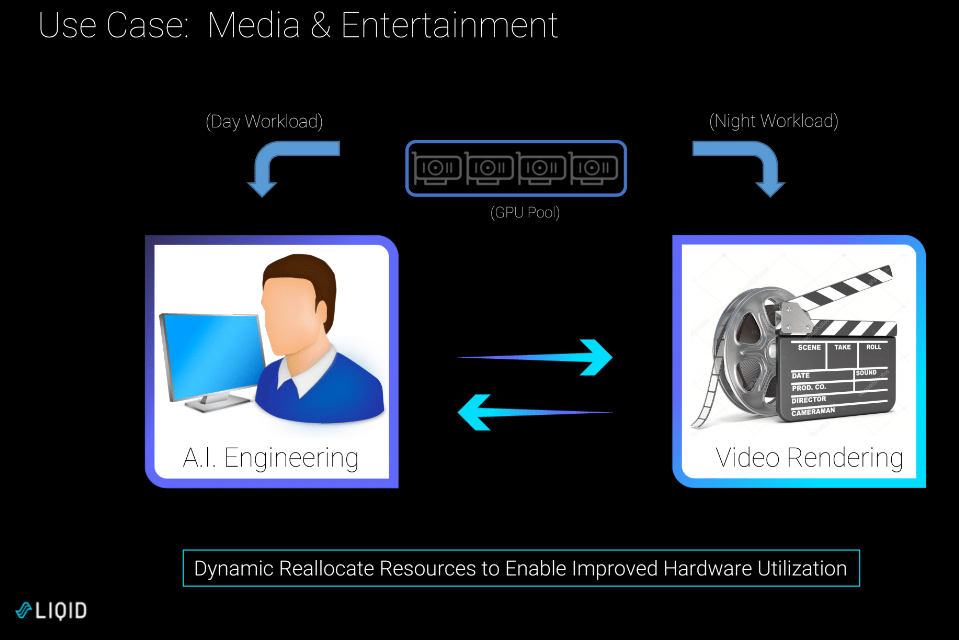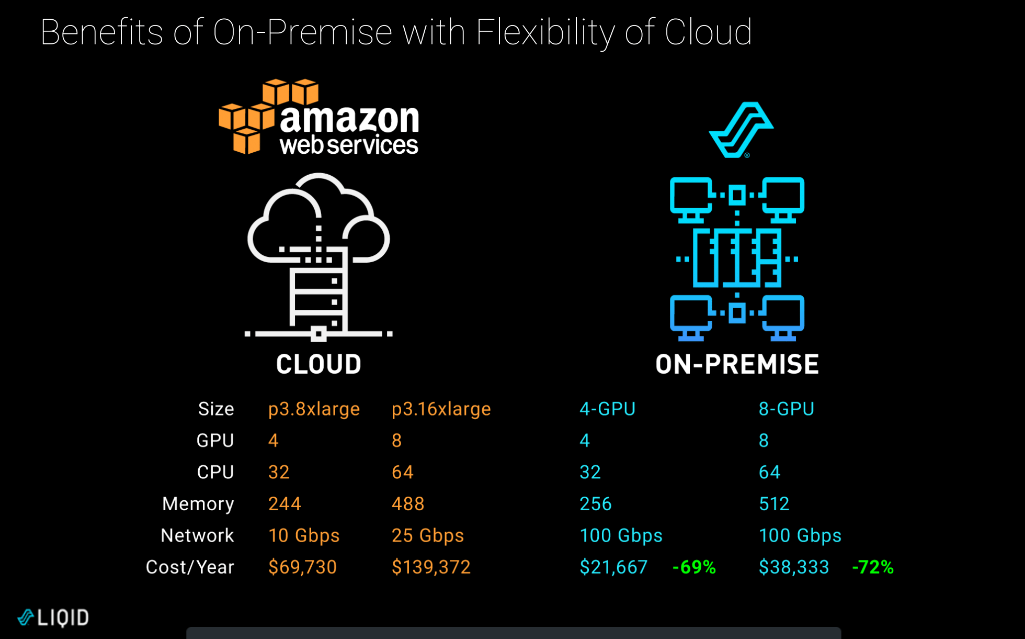Liqid - Is Composable Hardware the Future of the Data Center?
Liqid Inc. is a company at the forefront in the composable hardware market. I was able to learn about their composable hardware solution during a presentation for Tech Field Day Extra at Dell Technologies World. It was my first time hearing about the technology, and it was eye-opening. Composable infrastructure takes compute, network, storage, and GPU from various servers and allows them to be reconfigured into virtual computers composed of some, or all, of the resources. This takes place by leveraging the commonality and speed and low latency of the PCIe bus. A special PCIe switch with the Liqid OS defines the computers and resources allocated to them. It’s a very clever idea that can be leveraged in some interesting ways.
Below is a video where Liqid Inc.’s Sumit Puri introduces the company and the product.
My background is in server infrastructure, so it took me a while to get it, until I saw the hardware - the actual “stuff” that makes a system. The low latency PCIe fabric interconnects the components at a central hub. The other pieces can be made up of commodity server hardware. While at the Dell Technologies World show, Liqid Inc. announced that the partnership with Dell includes the PowerEdge server portfolio along with some Dell reference designs. JBOD storage, graphics, and networking are looped in to round out the system.
Some of the more thought provoking use cases center around re-configuring compute and other resources as needed, but using the same data set. There’s a sample scenario where the hardware is optimized for AI work in the day, then altered at night to perform video rendering. This idea underscores the fact that data gravity is very real and is a limiting factor for some organizations.
Use cases Liqid sees are:
AI and Deep Learning
HPC and Clustering
Dynamic Cloud
5G Edge
Pat Gelsinger reiterated his thoughts that hybrid cloud would be the future standard for enterprises. Mr. Gelsinger has insisted for a while now that certain workloads would be better served in the local data center, or at the edge. It stands to reason that those specialized workloads probably would benefit from customized hardware optimized to execute those tasks. Composable infrastructure seems a natural fit to provide local data centers with the type of flexibility needed to build specialized compute systems.
Enterprises would be good to continue to compare the prices and value of cloud vs. on premises compute. Liqid provided a graphic where they compare large cloud compute against on-prem infrastructure. Take it with a grain of salt, and keep in mind that cloud providers such as Amazon and Microsoft adjust prices frequently.
For more information about Liqid Inc, I encourage you to check out these posts from my fellow Tech Field Day delegates'
Liqid to Bring Industry-Leading Composable Infrastructure Platform to Global Enterprises
TFDx @ DTW ’19 – Get To Know: Liqid
GreyBeards talk composable infrastructure with Sumit Puri, CEO & Co-founder, Liqid Inc.




